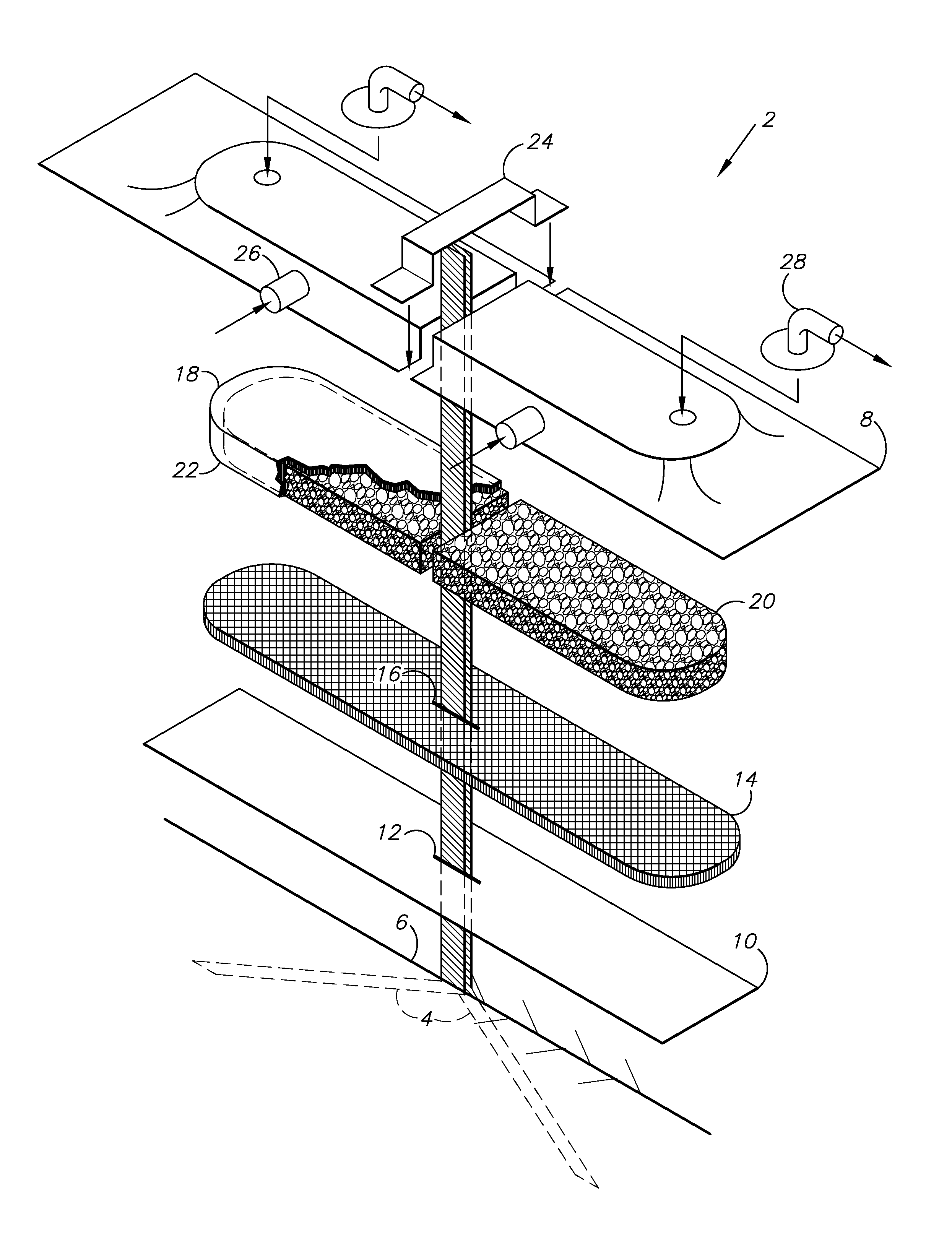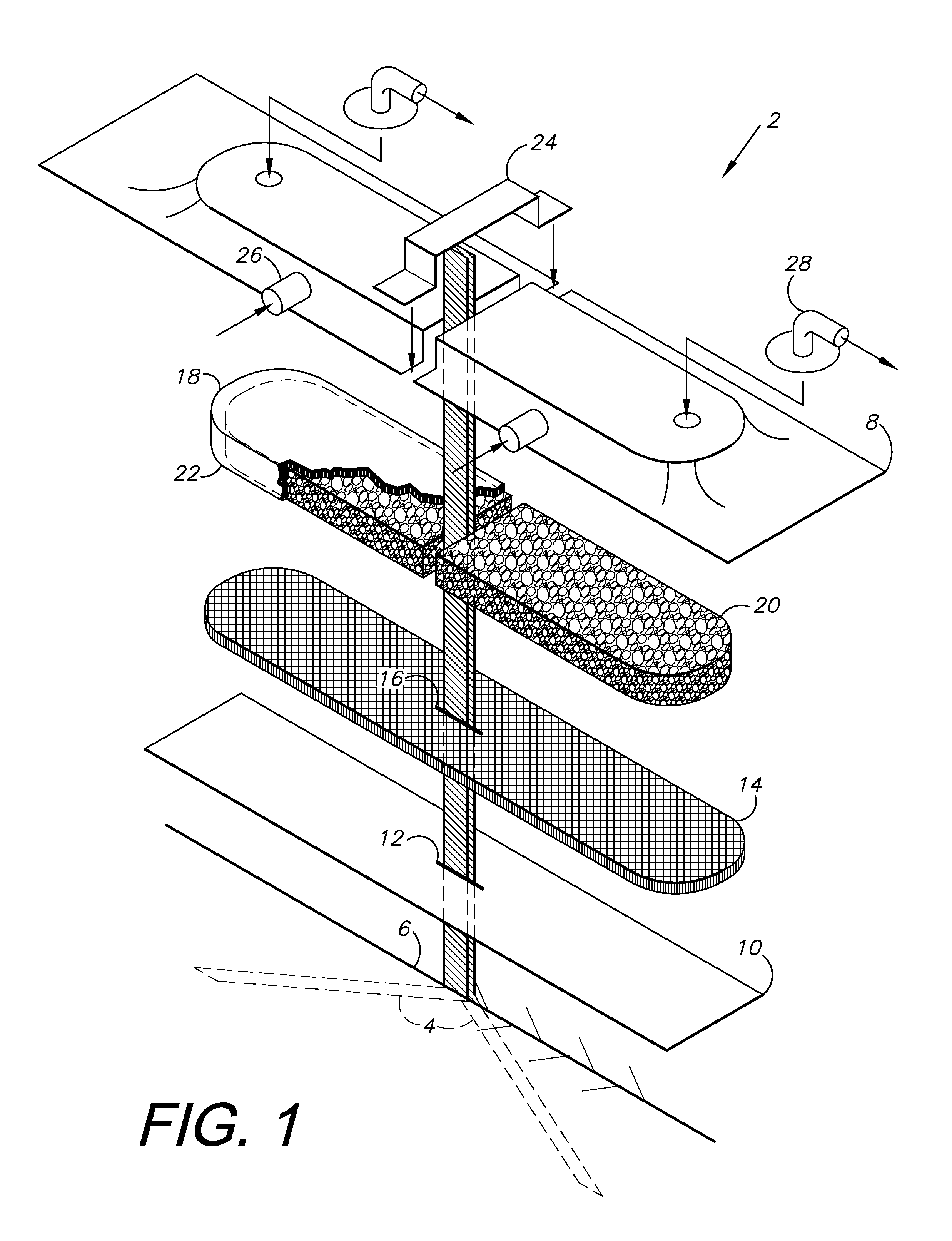Topical vacuum-press surgical incisional dressings, surgical adjuncts, hybrids and composites
- Summary
- Abstract
- Description
- Claims
- Application Information
AI Technical Summary
Benefits of technology
Problems solved by technology
Method used
Image
Examples
embodiment 1
II. Percutaneous Drain Slip Peripheral to the Incision and to the NPWT System Can Be Placed “Outside” the Drape
[0022]A NPWT system 2 is shown in FIG. 1 and includes percutaneous drain slips 4, which can extend into an incision 6 and terminate exteriorly at a film cover or drape 8. The slip drain 4 material can be any type of fluid impermeable thin plastic or rubber of small caliber (only a few millimeters in width) that will slide easily in the tissues and be of sufficient tensile strength that it will not tear or break as it is removed. Silicone wicks of the Swanson Drain variety are an example. They can be provided in the dressing kits or as a separate package in a roll or coil of 100 cms. This should be sufficient to run the entire length of the incision or cut into sections and run half the incision length—past either end or out the sides.
[0023]The slip drains 4 can be placed in the incision 6 and extend towards opposite ends and can exit the incision at an approximate midpoint ...
embodiment 2
III. Drain Slip Brought Out Through the Incision or Percutaneously but Still “Inside” and Under the Drape and / or the Foam and Mat of the Dressing
[0027]In this embodiment, the materials provided in the “drain” kit include the above described 100 cm roll of silicone slip drain (sizes and material specifics are NOT limiting) but also a convenient size of a covering wicking fabric (e.g. 3 or 4 pieces of rayon about ½ inch wide by 4 inches in length) and sealing strips (3 or 4 pieces of hydrocolloid about 8-10 mm's wide—such as are available in the new customized Prevena NPWT kit from Kinetic Concepts, Inc. to allow edge sealing) and strips of sealing drape.
[0028]The method is similar to that described in the first embodiment except that after laying the slip drain along the fascia, it is brought up to the surface at the end or edge of the incision (can theoretically be any point judged optimal by the surgeon to evacuate potential deep space collections of drainage). Closure is completed...
PUM
 Login to View More
Login to View More Abstract
Description
Claims
Application Information
 Login to View More
Login to View More - R&D
- Intellectual Property
- Life Sciences
- Materials
- Tech Scout
- Unparalleled Data Quality
- Higher Quality Content
- 60% Fewer Hallucinations
Browse by: Latest US Patents, China's latest patents, Technical Efficacy Thesaurus, Application Domain, Technology Topic, Popular Technical Reports.
© 2025 PatSnap. All rights reserved.Legal|Privacy policy|Modern Slavery Act Transparency Statement|Sitemap|About US| Contact US: help@patsnap.com


